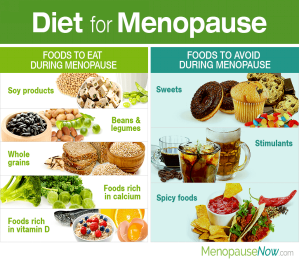A person who has had menopause can now refer to their postmenopausal period. Your menstrual cycle has stopped for more than 12 months in a row while you are in the postmenopausal stage. You are no longer ovulating (producing eggs) at this point in your life, having outlived your reproductive years.

There are three stages in menopause
Menopause is divided into three stages.
- Menopause
- Perimenopause
- Post menopause
1. Perimenopause
The phase of life preceding menopause is known as perimenopause. Menstrual cycles become unpredictable and irregular during this period, which is characterized by a decrease in hormones. Menopause side effects, such as hot flashes or dry vagina, could begin to affect you.
2. Menopause
takes place once you have gone 12 months without a period and have ceased producing the hormones that trigger your menstrual cycle
3. Post Menopause
The period following menopause is known as the postmenopause. You enter a lifelong postmenopausal state after this. Men and women who have gone through the postmenopausal stage are more susceptible to heart disease and osteoporosis.
People in menopause can feel symptoms such as
- Hot flashes and night sweats.
- Vaginal dryness and sexual discomfort.
- Depression.
- Changes in sex drive.
- Insomnia.
- Dry skin.
- Weight changes.
- Hair loss.
- Urinary incontinence Urinary incontinence.
Change in female body during menopause
menopause, which typically occurs in women around the age of 45-55, the body undergoes several changes due to the decrease in estrogen levels. Some common changes that women may experience during menopause include:
1. Hot flashes:
Many women experience sudden feelings of heat, sweating, and flushing, known as hot flashes, during menopause.
2. Vaginal dryness:
Decreased estrogen levels can lead to vaginal dryness, which may cause discomfort during intercourse.
3. Changes in menstrual cycle:
Menstrual periods may become irregular or stop altogether as a result of hormonal changes during menopause.
4. Mood swings:
Fluctuations in hormone levels can lead to mood swings, irritability, and feelings of anxiety or depression.
5. Sleep disturbances:
Some women may experience difficulty sleeping or insomnia during menopause.
6. Changes in bone density:
Estrogen plays a role in maintaining bone density, so decreased estrogen levels during menopause can increase the risk of osteoporosis and bone fractures.
7. Weight gain:
Changes in hormone levels and metabolism during menopause can lead to weight gain, particularly around the abdomen.
8. Changes in skin and hair:
Some women may experience changes in skin elasticity, dryness, and hair thinning during menopause. It is important for women going through menopause to maintain a healthy lifestyle, including regular exercise, a balanced diet, and regular check-ups with a healthcare provider to manage these changes and maintain overall health and well-being.
Menopause complications
menopause, some women may experience complications or health issues that can impact their well-being. Some common complications associated with menopause include:
1. Osteoporosis:
The decrease in estrogen levels during menopause can lead to a loss of bone density, increasing the risk of osteoporosis and fractures.
2. Cardiovascular disease:
Changes in hormone levels during menopause can affect cholesterol levels and increase the risk of heart disease and stroke.
3. Urinary incontinence:
The weakening of pelvic floor muscles and changes in the urinary tract can lead to urinary incontinence in some women during menopause.
4. Sexual dysfunction:
Vaginal dryness, decreased libido, and changes in sexual function can occur due to hormonal changes during menopause.
5. Mood disorders:
Hormonal fluctuations during menopause can contribute to mood swings, anxiety, depression, and other mental health issues.
6. Weight gain:
Changes in metabolism and hormone levels can lead to weight gain, particularly around the abdomen, during menopause.
7. Sleep disturbances:
Hormonal changes and other menopausal symptoms can disrupt sleep patterns and lead to insomnia or other sleep disorders.
Supporting your adrenal glands
- Menopausal women may experience stress due to hormonal changes and symptoms such as mood swings and sleep disturbances. When we are anxious, our adrenal glands produce stress hormones.
- The adrenal glands prioritize cortisol and adrenaline production over female hormones during stress. Emotional stress may also result in an overactive bladder.
- Minimizing stress through smart lifestyle choices can help relieve adrenaline, reduce frequent bathroom visits, and improve overall health. Recommendations for menopause include adequate sleep, a balanced schedule, leisure time, and nutritious food.
- Supplements, such as B vitamins, can help support adrenal gland function and nervous system activities. B-vitamins, magnesium, selenium, and vitamins C and D are often prescribed to supplement a menopause diet.
Diet for menopause
 Food included
Food included
1 Calcium-rich foods:
To support bone health and reduce the risk of osteoporosis, include dairy products, leafy green vegetables, tofu, and fortified foods in your diet.
2. Foods high in omega-3 fatty acids:
Omega-3 fatty acids can help reduce inflammation and support heart health. Include fatty fish like salmon, flaxseeds, chia seeds, and walnuts in your diet.
3. Foods rich in phytoestrogens:
Phytoestrogens are plant compounds that mimic estrogen in the body and may help alleviate some menopausal symptoms. Include soy products, flaxseeds, whole grains, and legumes in your diet.
4. Fruits and vegetables:
Aim to include a variety of colorful fruits and vegetables in your diet to provide essential vitamins, minerals, and antioxidants.
5. Lean protein sources:
Include lean proteins like poultry, fish, tofu, and legumes to support muscle health and overall energy levels.
6. Whole grains:
Opt for whole grains like brown rice, quinoa, oats, and whole wheat bread to provide fiber and sustained energy.
7. Hydration:
Stay hydrated by drinking plenty of water and herbal teas to support overall health and well-being.
Food excluded
Foods to avoid during menopause
Certain foods are always good to avoid from a pure health perspective. But for women in menopause specifically7, it’s wise to cut down on foods that can easily lead to weight gain, hot flashes, and affect your general well-being and instead focus on foods for menopause. Detailed below are foods to avoid during the menopause.
1. Trans fats
Trans fats or trans-fatty acids, are a form of unsaturated fat which can be found in foods such as:
- Bacon
- Potato chips,
- Margarine
- Cookies
- Instant soups and sauces
- Breads and pastries
- These foods might taste good, but they increase the risk of weight gain and heart disease.
2. Sugar
Try to choose the right type of carbohydrates and avoid fast, processed carbohydrates since they destabilize your blood glucose and elevate your insulin response.
3. Artificial sweeteners
Used in products such as diet sodas and chewing gum, common sweeteners like Aspartame have no real health benefits, and may be harmful. More research is needed to confirm this. Water is the best drink with meals, and an unbeatable thirst quencher.
4. Alcohol
Alcohol and menopause are not a good mix. Generally, the best option for overall health is not drinking at all. Avoiding alcohol can have a positive effect on your sleep since this is the time when your brain and body recover to get ready for the next day.
Alcohol and menopause don’t mix well because alcohol is also high in calories per gram and stimulates your appetite, which might lead to weight gain and work against your menopause diet.
5. Spicy foods
It is often suggested for women in menopause to avoid spicy foods. The effects are highly individual, but hot/spicy foods stimulate nerve endings, which can dilate blood vessels and trigger hot flashes8.
Foods that might trigger a reaction
You may also experience latent food sensitivities that manifest during menopause for the first time. Symptoms can include:
- Bloating
- Nausea
- Gas
- Constipation
Conclusion:
The combination of estrogen and progestin has been linked to an increased risk of breast cancer, which is often node-positive. The usage of estrogen and progestin appears to raise breast cancer mortality rates.
To Get More information:
- Visit: https://pinnacleihm.com
- Phone No:+91 92465 28830 | +91 98665 38830
- Email: info@pinnacleihm.com
- Address:#12-1-59/NR, Goods Shed Road,Behind Registration Office, Moosapet, Hyderabad-500018
- Maps: Pinnacle Institute of Hotel Management & Catering Technology
